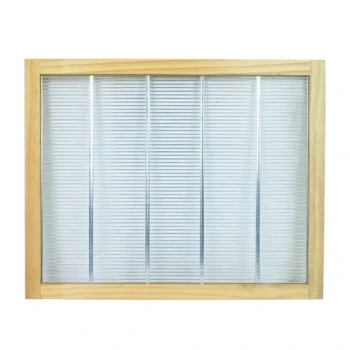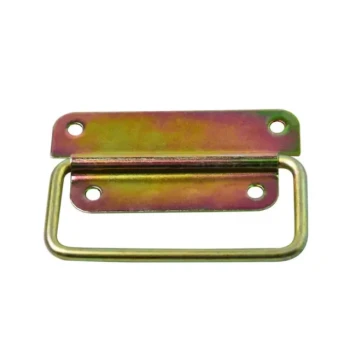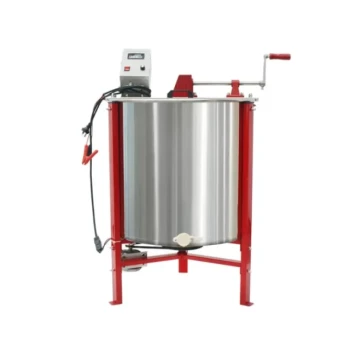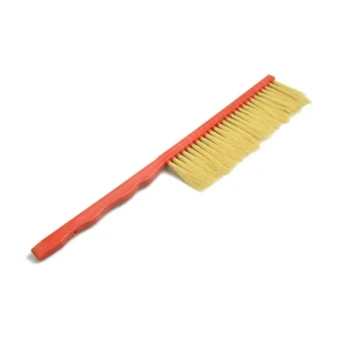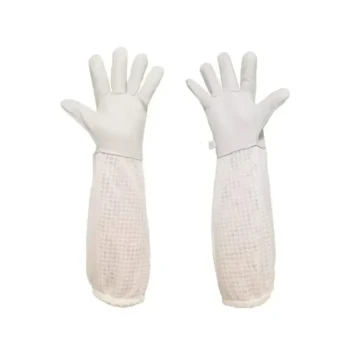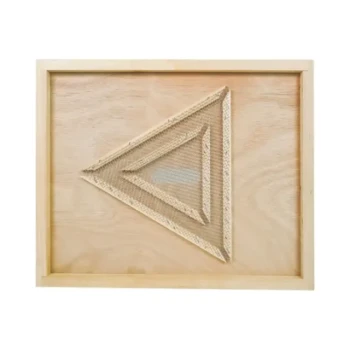For long-term durability and hive stability, metal queen excluders are the better choice. While plastic excluders are a viable, low-cost alternative, metal's rigidity and longevity prevent common issues that can impede bee movement and complicate hive management over time.
The decision between plastic and metal queen excluders is a classic trade-off between upfront cost and long-term performance. Metal is an investment in durability and structural integrity, while plastic offers affordability and light weight at the cost of a shorter lifespan and a tendency to warp.
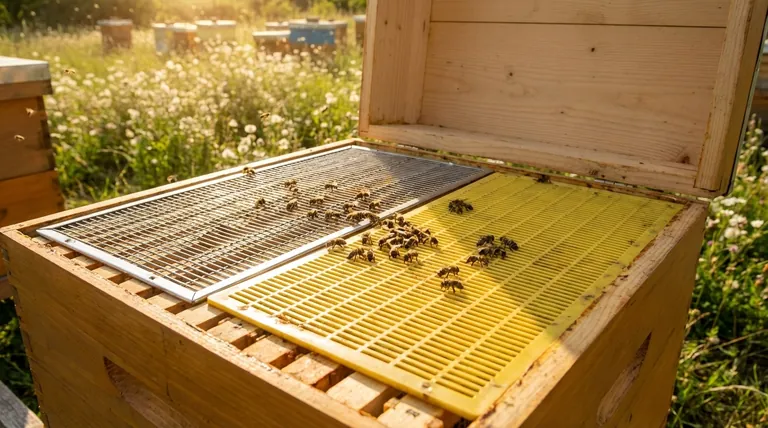
The Core Function of a Queen Excluder
Before comparing materials, it's essential to understand the role an excluder plays. Its primary purpose is to confine the larger queen bee to the brood boxes, keeping her and her eggs out of the honey supers.
Simplifying Honey Harvest
By ensuring honey supers are free of brood (eggs, larvae, and pupae), beekeepers can remove honey frames without worrying about harming the next generation of bees. This drastically increases the efficiency of honey extraction.
Improving Queen Management
When you need to find the queen—for inspection, replacement, or disease checks—an excluder significantly narrows the search area. You know she is confined to the brood boxes below.
Aiding in Pest Control
Frames filled only with honey are less attractive to pests like wax moths, which primarily feed on the protein-rich materials left behind in brood comb.
The Case for Metal Queen Excluders
Metal excluders are often considered the professional standard due to their robust construction and reliability.
Unmatched Durability
A well-cared-for metal excluder can last for decades. They are rigid, resistant to damage from hive tools, and can withstand the rigors of a busy apiary.
Maintaining Critical Bee Space
This is a metal excluder's most significant advantage. It sits perfectly flat and does not sag or warp. This maintains the correct "bee space" above the frames, allowing workers to pass through easily to the honey supers.
Superior Cleaning and Sterilization
Metal excluders can be cleaned easily by scraping off wax and propolis. More importantly, they can be sterilized with heat from a blowtorch, a highly effective method for killing disease pathogens that would melt plastic.
The Case for Plastic Queen Excluders
Plastic excluders are popular, especially among hobbyists, for several practical reasons.
The Clear Cost Advantage
Plastic excluders are significantly less expensive than their metal counterparts, lowering the initial investment required to set up a new hive.
Lightweight and Rust-Proof
They are much lighter and easier to handle than metal. They also have the obvious benefit of never rusting.
Thermal and Pest Considerations
Plastic does not conduct heat or cold into the hive cluster like metal can. Additionally, their smooth design often lacks the crevices where pests like small hive beetles can hide.
Understanding the Critical Trade-offs
Your choice has direct consequences for hive management and long-term costs. The primary drawback of plastic is directly linked to its key advantage for metal.
The Warping and Sagging Problem
The biggest failing of plastic excluders is their tendency to warp and sag under the heat and weight within a hive. This reduces the space between the excluder and the top bars of the frames below, restricting worker bee access to the honey supers and potentially reducing your honey yield.
Lifespan and Replacement Costs
While metal is a one-time purchase, plastic is not. The shorter lifespan of a plastic excluder means it will need to be replaced periodically, which can negate the initial cost savings over the long run.
Difficulty of Deep Cleaning
You cannot apply high heat to clean a plastic excluder. This makes it more difficult to thoroughly sterilize equipment if you are dealing with a hive disease.
Making the Right Choice for Your Apiary
Your decision should be based on your goals, budget, and management style.
- If your primary focus is long-term value and hive efficiency: Choose metal. Its rigidity and durability make it a reliable, one-time investment that won't interfere with bee traffic.
- If your primary focus is minimizing initial cost or weight: Plastic is a functional and affordable starting point, but be prepared for potential warping and future replacement.
- If you are in a region with high small hive beetle pressure: Plastic may offer a slight advantage due to its lack of crevices, though good hive management is a more critical factor.
Ultimately, selecting the right equipment is a key step in setting your colonies up for success.
Summary Table:
| Feature | Plastic Queen Excluder | Metal Queen Excluder |
|---|---|---|
| Durability & Lifespan | Shorter; prone to warping | Decades-long; rigid and durable |
| Initial Cost | Lower upfront cost | Higher initial investment |
| Long-Term Value | May need replacement | One-time purchase; better ROI |
| Bee Space Maintenance | Can sag, restricting bee movement | Maintains correct bee space |
| Cleaning & Sterilization | Difficult to deep clean; no high heat | Easy to scrape and sterilize with a torch |
| Weight | Lightweight | Heavier |
| Best For | Hobbyists, minimizing initial cost | Commercial apiaries, long-term efficiency |
Equip your apiary for long-term success with professional-grade equipment from HONESTBEE.
We supply durable, high-performance metal queen excluders and other essential beekeeping supplies to commercial apiaries and equipment distributors through our wholesale-focused operations. Our products are designed for reliability and maximum honey production, season after season.
Ready to strengthen your operation? Contact our wholesale team today to discuss your needs and get a quote.
Visual Guide
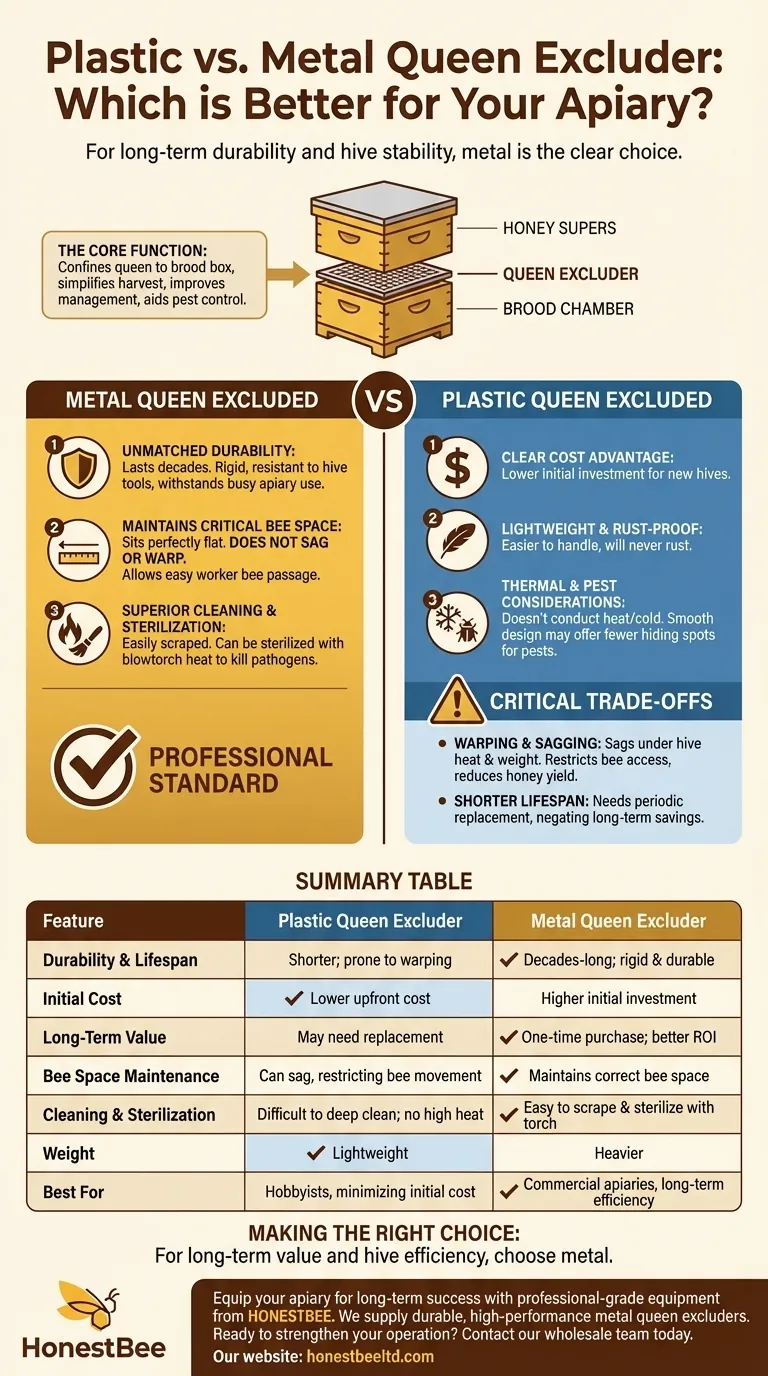
Related Products
- Professional Plastic Queen Excluder for Modern Beekeeping
- Wooden Queen Bee Excluder for Beekeeping
- High Performance Plastic Queen Excluder for Beekeeping and Apiary Management
- Premium Wood Framed Metal Wire Queen Bee Excluder
- Metal Queen Bee Excluder for Beekeeping
People Also Ask
- What is the primary function of a Queen Excluder in honey purity? The Key to Commercial Grade Harvests
- What technical control function does a queen excluder perform? Enhance Honey Purity with Spatial Zoning
- How do queen excluders assist in the management of honey production? Optimize Your Harvest Purity and Efficiency
- What is the core function of a Queen Excluder in royal jelly production? Boost Yields with Behavioral Management
- How does a queen excluder facilitate the production of high-quality commercial honey? Ensure Purity & Efficiency



